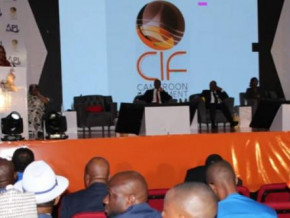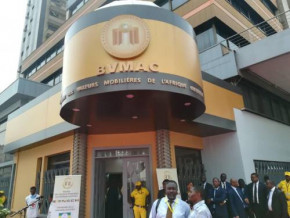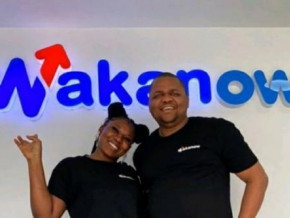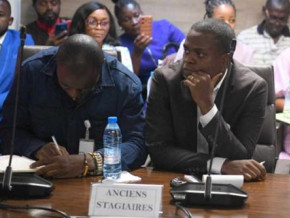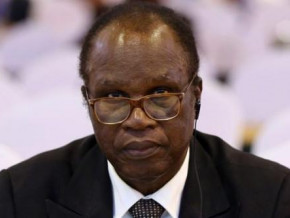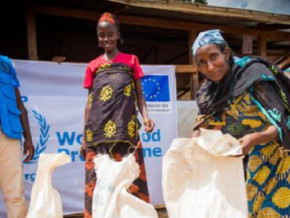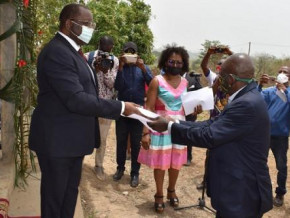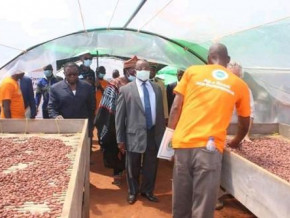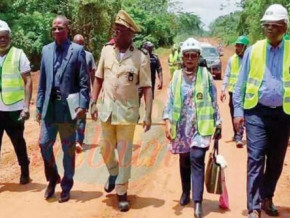
Mary Porter Peschka, Director of Sustainability (ESG) and Gender Solutions at IFC explains sustainable financing opportunities for Cemac economies (interview)
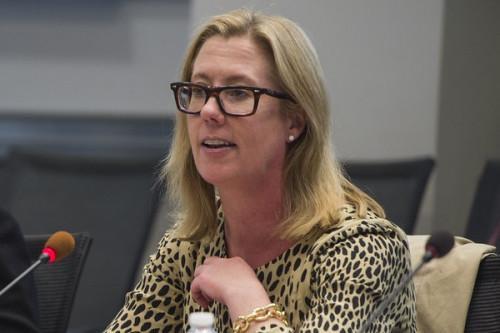
(Business in Cameroon) - The Bank of Central African States (Beac) recently announced it has officially joined the Sustainable Banking and Finance Network (SBFN). This move aims at fostering sustainable financing within the Cemac region.
On the sidelines of a workshop held on May 9 in Douala, the director of the environment, social, governance (ESG), and gender department at the IFC explained what sustainable finance can bring to CEMAC countries and the purpose of this particular type of financing.
BIC: Why is it important for Cemac economies to turn to sustainable financing?
Mary Porter Peschka: To put it simply, I would say that sustainable financing is a response to the climate crisis. For example, it enables the establishment of a regulatory framework for the issuance of green bonds, which can be used to finance the construction of a hydro dam that would help reduce greenhouse gas emissions in the region. That is to say that sustainable finance is a mechanism for raising funds from States and private companies for environment-friendly projects. We should all be involved in the climate matter.
BIC: Do you mean the funds raised through sustainable finance will be approved at affordable rates since they are for the climate cause?
MPP: Sustainable finance does not particularly affect rates, it much more focuses on the usefulness of the financing granted. Rates are set depending on the financial markets and central banks. We have seen some green bonds issued in several countries where the demand was so high that it allowed the company to negotiate a more favorable interest rate. So basically, interest rates are always defined based on the principles of supply and demand and the macroeconomic context of the markets.
BIC: Beac officially joined the Sustainable Banking and Finance Network (SBFN) on May 9. What does this membership bring to Cemac in general and Beac in particular?
MPP: On May 8, we organized a workshop with the authorities in the region to discuss how to develop roadmaps on sustainable financing, the prerequisites and issues to be considered, how to choose the leader of the consultations, and how to identify stakeholders, among other aspects. I can say that the partnership we have with the Beac under the SBFN is already bearing fruit as consultations have begun. More broadly, in the future, the SBFN will allow the establishment of an exchange platform where different countries and institutions can share their experiences in the matter of sustainable finance.
BIC: How is the IFC supporting SBFN members?
MPP: We show them support by providing needed tools and offering our expertise and presence. For events like the ones held in recent days, IFC has sent about eight representatives who have participated either by leading training workshops or moderating discussions. We are there to offer technical knowledge and support to help network members.
BIC: What are the main IFC’s actions to support economic development in Cemac?
MPP: Our strategy for the CEMAC region aims to create opportunities to improve digital infrastructure; support national value chains, particularly in the agricultural sector; improve access to finance for SMEs; and address the infrastructure needs of an increasingly urban population.
One of our key priorities is the development of clean and sustainable infrastructure and inclusive finance. Here are some examples of IFC projects in the CEMAC region:
The Nachtigal hydroelectric project over the Sanaga River in Cameroon. This project will be a major source of clean energy for the country and is currently the largest IFC investment in the electricity sector in Africa. The project is expected to swallow $1.3 billion.
The 35 MW Kinguele Aval hydroelectric power plant for which the IFC granted over €175 million in 2021 in collaboration with the Gabonese government and other investors to provide Libreville with low-cost clean energy production capacity.
A €50 million partnership with BOCOM Petroleum in 2022 to expand access to liquefied petroleum gas (LPG) in Cameroon. The project will help replace the use of kerosene, charcoal, firewood, and sawdust that fuel deforestation and affect air quality in households.
There is also a consulting partnership with Activa Assurances in 2019 to strengthen insurance coverage for women, including women entrepreneurs.
We also entered into a partnership with the Cameroonian Equipment Company (SCE) to help Cameroonian SMEs access financing more easily and support economic activity and job creation in the country.
Interview with Cédrick Jiongo
Translated from French by Firmine AIZAN
Mags frontpage
- Most read 7 days
- shared 1 month
- read 1 month



